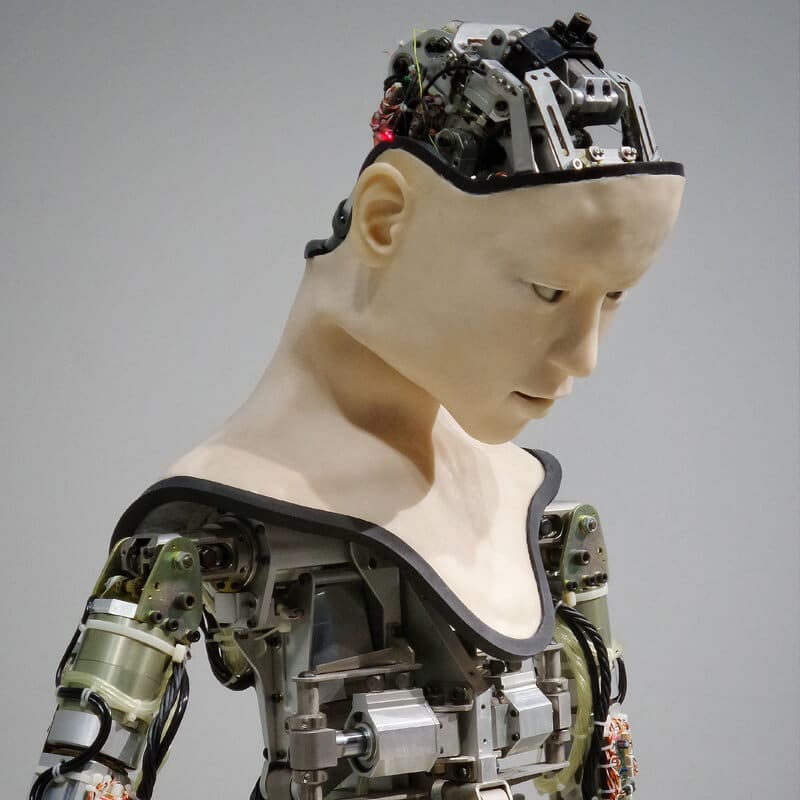
One giant leap for man, one step back for everyone else: Why space exploration must be inclusive
Opinion + AnalysisBusiness + LeadershipScience + Technology
BY Dr Elise Stephenson Isabella Vacaflores 14 SEP 2023
Greater representation of women and minoritised groups in the space sector would not only be ethical but could also have great benefits for all of humanity.
The systematic exclusion of women – and other minoritised groups – from all parts of the space sector gravely impacts on our future ability to ‘make good’ our space ambitions and live out the principle of equality. Minoritised groups refer to groups that might not be a minority in the global population (women, for instance) but are minoritised in a particular context, like the space sector.
Currently, more than half of humanity is treated as an afterthought for space tech billionaires and some government space agencies, amplifying dangerous warning signs already heralded by space ethicists and philosophers, including us. If these warning signs are ignored, we are set to repeat earthly inequalities in space.
Addressing the kind of society we want in space is crucial to fair and good decision making that benefits all, helping to mitigate risk and protecting future generations.
What does diversity in the space sector look like right now?
Research reveals that women have held 1 in 5 space sector positions over the past three decades. Across much of the sector, representation is at best marginally improving in public sector roles, whilst at worst, stagnating or regressing over a period where we should have seen the greatest improvements.
For example, of the 634 people that have gone to space, just over 10% have been women.
Our research has found that from the publicly available data, only 3 out of 70 national space agencies have achieved gender parity in leadership. Both horizontal and vertical segregation limits women – even in agencies that are doing well – pushing them down the organisational hierarchy and pigeonholing them out of leadership and operational, engineering and technical roles, which are often better paid and have higher status.
It is not just the most visible part of the space sector that is struggling to address the issue of gender inequality. Exclusion and discrimination have been reported by women occupying roles from astrophysicists and aerospace engineers to space lawyers and academics.
Prejudice is a moral blight for many workplaces, not least because it holds industry back from realising its fullest potential. Research finds that more diverse teams typically do this better and are more innovative – having a diverse mix of perspectives, experience, and knowledge ultimately helps conquer groupthink and allows a broader range of opportunities and complications to be considered. In the intelligence sector, diversity further helps “limiting un-predictability by foreseeing or forecasting multiple, different futures” which may be similarly relevant for the space sector.
Space exploration is a gamble, but getting more women and people from diverse backgrounds into the space sector will improve humanity’s odds.
In the context of space, failing to act on such insights would be morally irresponsible, given the risk taken by the sector on humanity’s behalf every single day.
Space is defined by the Outer Space Treaty as a global commons, meaning it is a resource that is unowned by any one nation or person – yet critically, able to be ‘used’ by any, so long as they have the resources to do so. As it stands, the cost and inaccessibility of space technology means that only a privileged few individuals, companies, and countries are currently represented in the space domain. In broader society, these privileged few are predominantly white, wealthy, connected men.
Being ‘good ancestors’ in the new space age
We might consider the principle of intergenerational justice espoused by governments or the ‘cathedral thinking’ metaphor by Greta Thunberg to describe the trade-off between small sacrifices now for huge benefits moving forward.
To further her metaphor, our ethical legacy is not shaped solely by our past, but also by our ability to be regarded as ‘good ancestors’ for future generations. These arguments are already being spurred in Australia by movements like EveryGen, Orygyn, the Foundation for Young Australians and Think Forward (among others) who are aiming for more intergenerational policymaking across many domains.
As the philosopher Hannah Pitkin notes, our moral failings arise not from malevolent intent, but from refusing to thinking critically about what we are doing.
A new space ethics
Whilst it will take some time to see gender parity occur in the space industry even if quotas or similar approaches are taken, there are still ‘easy wins’ to be had that would help elevate women’s and minoritised voices.
We found many women in the space industry who were interested in forming networks both within and between agencies and organisations. These typically serve a wide range of functions, from networking in the strict sense of the word to enabling a safe space to discuss diversity and inclusion or drive advocacy efforts. Research shows diversity networks having benefits for career development, psychological safety and community building.
Beyond this individualised, sometimes siloed approach, organisations also need to deeply commit to tackling inequality at a systematic level and invest in diversity, inclusion, belonging and equity policies which many in the space sector currently lack. Without transparently defined goals and targets in this area, it is difficult for organisations to measure their progress and, moreover, for us to hold them accountable.
Finally, looking to the next generation, the industry needs to engage a diverse range of students from different educational and demographic backgrounds. This means offering internships and educational opportunities to students that might not adhere to the current ‘mould’ of what someone looking in space looks like. For instance, the National Indigenous Space Academy offers First Nations STEM students a chance to experience life at NASA, whilst other initiatives across the sector include detangling the STEM-space link, to demonstrate the range of roles and opportunities available in the space sector for even non-STEM career paths.
In the height of the Soviet-American space race, JFK said: “we choose to go to the Moon in this decade and do other things, not because they are easy, but because they are hard”. Transforming the exclusive structures and patriarchal history of the space sector may not always be a simple task, but it is fundamentally critical on both a practical and moral level.
Ethics in your inbox.
Get the latest inspiration, intelligence, events & more.
By signing up you agree to our privacy policy
You might be interested in…
Opinion + Analysis
Business + Leadership, Politics + Human Rights
Housing affordability crisis: The elephant in the room stomping young Australians
Opinion + Analysis
Business + Leadership
Businesses can’t afford not to be good
Explainer
Relationships, Science + Technology
Ethics Explainer: Post-Humanism
Opinion + Analysis
Relationships, Science + Technology




